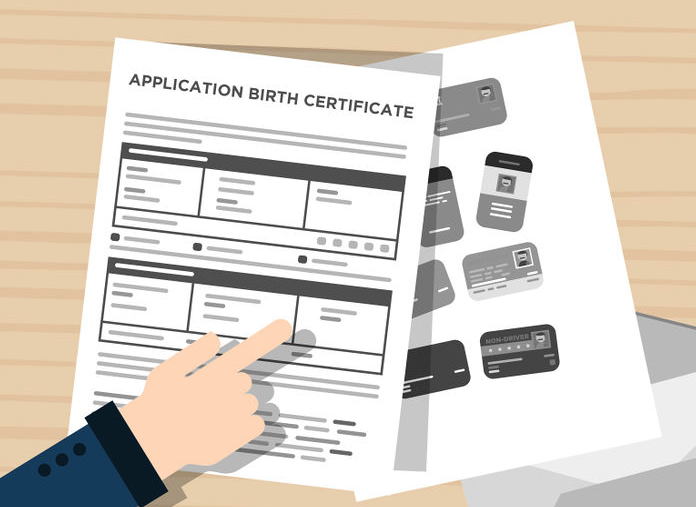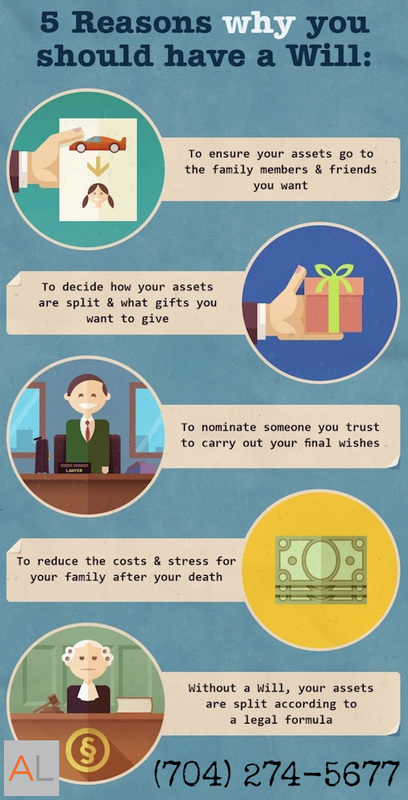|
When a family experiences a separation or divorce, a grandparent sometimes loses contact with their grandchildren through no fault of their own. We are often asked what rights the grandparent has, if any.
In North Carolina, a grandparent has the right to claim visitation with their grandchildren under certain circumstances, even over the objection of one or both parents. There are several statutes that permit a grandparent to maintain an action for visitation of their grandchild:
Understand that biological parents have a 14th Amendment right to care for a nurture their children. This is called the “Peterson presumption” in North Carolina, which provides that custody with a parent is presumed to be in the child’s best interest. The grandparent must overcome this presumption to obtain custody. Therefore, for a grandparent to prevail against a parent in an action for child custody, they must show that the parent(s) is either unfit, has neglected the child(ren), or has engaged in conduct inconsistent with their protected status (i.e., voluntarily giving up custody of a child to a non-parent). Grandparents, and non-parents bringing an action for custody, must prove their case with clear and convincing evidence. If you have questions regarding grandparent custody and visitation rights in North Carolina, contact Adkins Law. We have offices in Huntersville and Charlotte for your convenience. 1) How long do we have to be separated before we can file for divorce in NC? Under North Carolina General Statute (N.C.G.S.) § 50-6 provides that either party may apply for divorce but only “if and when the husband and wife have lived separate and apart for one year, and the plaintiff or defendant in the suit for divorce has resided in the State for a period of six (6) months.” 2) How long will divorce process take once the complaint is filed? It depends each county in North Carolina is different and has its own local rules and procedures when processing a complaint for absolute divorce. When the plaintiff files a complaint for absolute divorce, a defendant is entitled to 30 days to respond to the lawsuit. A defendant is may ask the Court for additional time in which to respond and in most cases a Court will allow a permit an additional 30 days for the defendant to respond to the complaint. If a defendant fails to respond to the complaint within 30 or 60 days if applicable, the plaintiff is entitled to proceed with their claim for absolute divorce. In Mecklenburg County, unlike some other counties, no court appearance will be required by either party for a Court to enter a judgment of absolute divorce. 3) What factors does the court look at in determining alimony? Under N.C.G.S. § 50-16.3A(a), “the court shall award alimony to the dependent spouse...upon a finding that the other spouse is the supporting spouse, and that an award of alimony is equitable after considering all relevant factors, including those set out in subsection (b) of this section.” N.C.G.S. § 50-16.3A(b) “In determining the amount, duration, and manner of payment of alimony, the court shall consider all relevant factors, including: (1) The marital misconduct of either of the spouses. [The court will consider all evidence of martial misconduct that has occurred during the marriage and prior to the date of separation.]; (2) The relative earnings and earning capacities of the spouses; (3) The ages and the physical, mental, and emotional conditions of the spouses; (4) The amount and sources of earned and unearned income of both spouses, including, but not limited to, earnings, dividends, and benefits such as medical, retirement, insurance, social security, or others; (5) The duration of the marriage; (6) The contribution by one spouse to the education, training, or increased earning power of the other spouse; (7) The extent to which the earning power, expenses, or financial obligations of a spouse will be affected by reason of serving as the custodian of a minor child; (8) The standard of living of the spouses established during the marriage; (9) The relative education of the spouses and the time necessary to acquire sufficient education or training to enable the spouse seeking alimony to find employment to meet his or her reasonable economic needs; (10) The relative assets and liabilities of the spouses and the relative debt service requirements of the spouses, including legal obligations of support; (11) The property brought to the marriage by either spouse; (12) The contribution of a spouse as homemaker; (13) The relative needs of the spouses; (14) The federal, State, and local tax ramifications of the alimony award; (15) Any other factor relating to the economic circumstances of the parties that the court finds to be just and proper. (16) The fact that income received by either party was previously considered by the court in determining the value of a marital or divisible asset in an equitable distribution of the parties' marital or divisible property.” 4) What if I am military and live out of state? Can our divorce still be filed in NC? Yes, as long as one party resides in North Carolina for six months. The divorce will have to be filed in the county the NC resident resides in. 5) Is spousal support available while divorce is pending in court or only after the divorce has become final? It is up to the court to order that one spouse provide support to the other during the pendency of the divorce action and/or after the divorce has become final. Also, support that is awarded pending the final decree of divorce is not to extend beyond the period necessary for the prosecution of the divorce action. 6) When is considered to be abandonment by spouse? Abandonment occurs when a spouse intentionally moves out of the martial home with the intent to remain permanently apart without the consent of the other spouse, and without provocation by the other spouse. 7) Is your spouse entitled to alimony if they cheated on you? No. Under N.C.G.S. § 50-16.3A(a) provides that a spouse that is found dependent by the court is not entitled to alimony if he or she has had sexual relations with another person that is not their spouse at any time prior to the date of separation. 8) What if my spouse does not agree to the divorce, can I still go forward with the divorce? Yes. You can obtain a divorce decree whether your spouse agrees with it or not, as long as you and your spouse have been separated for one-year and one of you has been a resident of North Carolina for six-months prior to the filing of this divorce action. 9) What are the types of divorce that NC recognizes? North Carolina is a “no-fault” state which means that neither party has to prove fault of the other in order to file or be granted a divorce decree, you are only required to be separated for one-year and one of the spouses must have resided in NC for six-months prior to filing for divorce. Further, North Carolina recognizes two types of divorces: (1) “absolute divorce” and (2) “divorce from bed and board.” (1) “Absolute divorce” is like a no-fault divorce, either party can obtain, once you and your spouse have lived separate and apart for one-year. (2) “Divorce from bed and board” is not technically a divorce but rather a judicially authorized legal separation. There are six grounds for this type of divorce based on injury to the party filing for divorce as provided under N.C.G.S. § 50-7. “The court may grant divorces from the bed and board on application of the party injured…in the following cases if either party: (1) Abandons his or her family, or (2) Maliciously turns on the other out of doors. (3) By cruel or barbarous treatment endangers the life of the other. In addition, the court may grant the victim of such treatment the remedies available under N.C.G.S. § 50B-1. (4) Offers such indignities to their spouse as to render the condition his or her condition intolerable and life burdensome. (5) Becomes an excessive user of alcohol or drugs so as to render the condition of the other spouse intolerable and the life of the spouse burdensome. (6) Commits adultery.” [NCGS § 50-7] 10) Does North Carolina recognize common law marriage? No, North Carolina does not recognize common law marriage. If, however, you moved to North Carolina from a state recognizing common law marriage, you still may need to file for an absolute divorce. If you need to arrange a consultation with a family law attorney concerning separation and/or divorce, contact Adkins Law. We have locations in Huntersville and Ballantyne for your convenience.  Disinheriting a spouse? Under North Carolina law, you cannot completely disinherit your spouse who are you are currently married to and living with. The surviving spouse is entitled to an “elective share” of the decedent’s total net assets. The right of elective share by the surviving spouse can be found under N.C.G.S. § 30-3.1, which also provides what percentage is the surviving spouse’s share of the total net assets of the decedent: “(1) If the surviving spouse was married to the decedent for less than five years, fifteen percent (15%) of the Total Net Assets. (2) If the surviving spouse was married to the decedent for at least five years but less than 10 years, twenty-five percent (25%) of the Total Net Assets. (3) If the surviving spouse was married to the decedent for at least 10 years but less than 15 years, thirty-three percent (33%) of the Total Net Assets. (4) If the surviving spouse was married to the decedent for 15 years or more, fifty percent (50%) of the Total Net Assets.” If you and your spouse are separated, however, you may waive the right to receive anything from the other's estate if you chose to execute a separation agreement stating as much. Disinheriting children? In North Carolina, you can disinherit your children. If you chose to disinherit a child, you must do so by explicitly stating that the child is disinherited in your will. It may also help to state the reason as to why the child is getting nothing, or a reduced amount. If you simply do not mention a child in your will, it may be interpreted that you did not mean to intentionally exclude the child. If you would like to speak with an estate planning attorney regarding drafting a will or estate plan, contact Adkins Law. We have locations in Huntersville and Ballantyne for your convenience.  What is the Recapture Rule? If your alimony payments decrease or end during the first 3 calendar years, you may be subject to the recapture rule. The reasons for a reduction or end of alimony payments that can require a recapture include:
The recapture rule forces the alimony payer, usually the ex-husband, to report as income the alimony payments he previously deducted, which means the ex-wife is entitled to reduce from income the alimony payments she previously received. When does the Recapture Rule Apply? The rule applies when the payments decrease or terminate during the first three calendars years post-divorce and: 1.) The total payments made in the third year decrease by $15,000 or more from the payments made in the second year; or 2.) The payments made in the second year and the third year are substantially less than the payments made in the first year. Recapture Rule & Filing Taxes: a) Including the recapture amount in your income: If you must include a recaptured amount in income, show it on Form 1040, line 11 (“Alimony received”). Cross out “received” and enter “recapture.” On the dotted line next to the amount, enter your spouse's last name and SSN or ITIN. b) Deducting the recapture amount: If you can deduct a recaptured amount, show it on Form 1040, line 31a (“Alimony paid”). Cross out “paid” and enter “recapture.” In the space provided, enter your spouse's SSN or ITIN. Exceptions to the Recapture Rule? The Recapture Rule does NOT apply to the following:
If you need to speak with a family law attorney in regards to alimony, contact Adkins Law. Adkins Law has offices in Huntersville and Ballantyne for your convenience.  Step 1. Determine which payments you made qualify as alimony. Payments that are NOT alimony: Not all payments under a divorce or separation instrument are alimony. Alimony does not include:
Requirements for a payment to be alimony:
General Rules for alimony payments:
Step 2. Mark down alimony payments made or received on your taxes: a) How to Deduct Alimony Paid on your Taxes:
b) How to Report Alimony Received on your Taxes:
For more information go to https://www.irs.gov/publications/p17/ch18.html. If you would like to speak with a family law attorney in regards to alimony, contact Adkins Law. Adkins Law has offices in Huntersville and Ballantyne for your convenience.  Many couples make the choice to live together before getting married. If you are planning to buy a house with your partner, ideally you should both sign a joint home ownership agreement. After all, this is one of the largest investments you will ever make. If things don’t work out you don’t want to rely on a verbal agreement. If you are living in a house that you bought as a couple and split up, what happens to the house? In most states, if both names are on the deed, the presumption is that you are equal partners unless you have signed some other agreement. Of course, life isn’t usually that simple. Sometimes only one person contributes to the down payment or one partner may have contributed a much larger share than the other. Or perhaps one partner has invested a disproportionate share of time and money in home improvements. Another possibility is that only one name is on the deed but both have contributed to the mortgage payments and improvements. Now what? If you have a joint ownership agreement, the process will be much simpler because you have agreed in writing how those issues will be addressed. If not, one possibility is to value each partner’s contribution in terms of down payment, improvements, mortgage payments, etc. and then use those figures to determine the ownership percentage of each partner. You may need to enlist the advice of a real estate professional and or a mediator if you disagree about the value of home improvements, market value, etc. Once the ownership ratios are established, the next step is to decide whether you will sell the property to a third party or if one of the partners will be staying and buying out the other’s interest. It will be less costly if one partner buys out the other’s share because you avoid all the costs associated with selling a house, particularly, real estate commissions. Often, the amount of the real estate commission will be deducted from the market value of the house even if there isn’t a third party sale. Another deduction might be made for any deferred maintenance costs. The market value less the commissions and deferred maintenance costs will then be allocated according to the ownership shares of each partner. If you need to speak with a family law attorney regarding a joint home ownership agreement, contact Adkins Law. We have locations in Huntersville and Ballantyne for your convenience.  Step 1. Go to the clerk of court in the county you live in to request a name change to the birth certificate. You will receive an order approving the name change from the clerk, which you will submit with the application to NC Vital Records. Step 2. You must complete the Birth Certificate Application form, you can download the application online at http://vitalrecords.nc.gov/documents/Appl_BirthCert_GN_fill-in_20150504.pdf. You must include a certified copy of the name change court order along with your request. Step 3. Mail your Birth Certificate Application form with a $24 search fee (nonrefundable) and a $15 processing fee to NC Vital Records. North Carolina Vital Records 1903 Mail Service Center Raleigh, NC 27699-1900 Note that there is an additional charge of $24 for the first copy of the requested certificate, and $15 more for each additional copy of the same certificate. For any further questions about amending a birth certificate go to http://vitalrecords.nc.gov or call NC Vital Records at (919) 733-3000 If you need to speak with a family law attorney in Huntersville or Ballantyne, contact Adkins Law to arrange a consultation. With it being summer time, many people are planning to go on vacation to the beach, mountains, or lake. When you rent a vacation rental property in North Carolina, you need to be aware of the North Carolina Vacation Rental Act. This Act applies to residential property rented for vacation, leisure, or recreational purposes for fewer than 90 days. Renters must have a permanent residence elsewhere to which they intend to return.
If you own a vacation rental property, to be covered by the North Carolina Vacation Rental Act, you must get an agreement in writing with any tenant. The agreement must clearly state that the rental is covered by the Vacation Rental Act, and that you may evict the tenant using an expedited procedure. The agreement is only enforceable after the tenant signs it, pays money to you or a management company on your behalf, or takes possession of the property. If you purchase a vacation rental home, be sure to check with the seller in regards to any existing vacation rental agreements. As an owner, you must honor any vacation rental agreements that end within 180 days from when you record your interest in the vacation property with the register of deeds. The seller must inform the purchaser of any rental agreements affecting the vacation property, and provide the purchaser with a copy of any agreements within 10 days of the transfer of the vacation property. As the new owner, you must provide notice to any tenant within 20 days of purchasing the property. As a vacation rental property owner, you have a duty to maintain the property in a fit and habitable condition. This means that you must comply with all building and housing codes, make any and all necessary repairs, keep the property in safe condition, and provide smoke and carbon monoxide detectors. If the owner fails to maintain the vacation property in a fit and habitable condition, the owner must either provide the tenant with a reasonably comparable property, or refund all payments made by the tenant. A vacation rental property owner may also require a tenant to pay a security deposit. The security deposit may be charged to cover such things as non-payment of rent, damage to the premises, the cost of re-renting the vacation property if the tenant breaches the rental agreement, the costs of unpaid additional utility charges (ex. pay-per-view movie rental expenses or long-distance telephone expenses), and court costs for terminating a tenancy. The security deposit must be held in a North Carolina trust account throughout the tenancy, and must either be applied as permitted, or refunded to the tenant within 45 days of termination of the tenancy. As any vacation rental property owner has likely experienced, the vacation property will likely sustain damages at some point by a renter. Vacation rental tenants are responsible for any and all damages, defacement, and/or removal of property inside the vacation property during their stay. These expenses may be covered by any potential security deposit, or the owner may have to pursue a legal action in court to recover damages. The renter is not responsible for damage due to ordinary wear and tear, or acts of nature (ex. hurricane or flooding damage to a beach house). If a renter violates the terms of a rental agreement while occupying the vacation property, the owner may chose to have the renter evicted. The North Carolina Vacation Rental Act allows an owner to evict a tenant in an expedited process. To qualify for an expedited eviction, the renter must have either overstayed their lease, materially breached a vacation rental agreement that by its terms allows for an eviction, failed to pay rent as required, or obtained the property by fraud or misrepresentation (ex. minor children getting their parents to rent a beach house for Spring Break). To initiate the expedited eviction process, the owner must provide the renter with four hours notice (either written or oral notice will suffice). The owner must then file a complaint with the clerk in the county where the property is located, and have a summons issued by the clerk. A law enforcement officer must serve the summons and complaint on the renter, and the eviction hearing will be held not sooner than 12 hours from issuance of the summons, and not longer than 48 hours from issuance of the summons. If the owner is successful at the hearing, a magistrate will issue an order evicting the renter from the property. The renter will then have 8 hours to vacate the property. If the renter chooses to appeal the eviction order, they must provide a bond in an amount that covers any rent due to the owner, and any damages the owner may sustain as a result of having to cancel other potential rental agreements. If you are interested in renting your vacation home, it is recommended that you use a vacation rental agreement that complies with the North Carolina Vacation Rental Act. The North Carolina Association of Realtors has developed a form contract (No. 411-T) that meets the requirements of the Act. You may also use your own rental agreement, although you may want to consult with an attorney to review the agreement in detail to ensure that it complies with the vacation rental act. If you wish to discuss owning or renting vacation rental properties in North Carolina, contact Adkins Law to arrange a consultation. |
Archives
January 2022
|
Lake Norman Location
9620 Sherrill Estates Road
Huntersville, North Carolina 28078
(704) 274-5677 main
(704) 231-5762 text
(877) 208-7577 fax
9620 Sherrill Estates Road
Huntersville, North Carolina 28078
(704) 274-5677 main
(704) 231-5762 text
(877) 208-7577 fax





